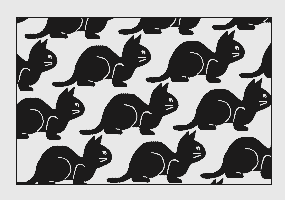Another Hawaii solider does good :)
So another local General does his job and since they don't like the report, he gets fired! So Sad :(
“Here . . . comes . . . that famous General Taguba—of the Taguba report!” Rumsfeld declared, in a mocking voice. The meeting was attended by Paul Wolfowitz, Rumsfeld’s deputy; Stephen Cambone, the Under-Secretary of Defense for Intelligence; General Richard Myers, chairman of the Joint Chiefs of Staff (J.C.S.); and General Peter Schoomaker, the Army chief of staff, along with Craddock and other officials. Taguba, describing the moment nearly three years later, said, sadly, “I thought they wanted to know. I assumed they wanted to know. I was ignorant of the setting.”
In the meeting, the officials professed ignorance about Abu Ghraib. “Could you tell us what happened?” Wolfowitz asked. Someone else asked, “Is it abuse or torture?” At that point, Taguba recalled, “I described a naked detainee lying on the wet floor, handcuffed, with an interrogator shoving things up his rectum, and said, ‘That’s not abuse. That’s torture.’ There was quiet.”
...Taguba got a different message, however, from other officers, among them General John Abizaid, then the head of Central Command. A few weeks after his report became public, Taguba, who was still in Kuwait, was in the back seat of a Mercedes sedan with Abizaid. Abizaid’s driver and his interpreter, who also served as a bodyguard, were in front. Abizaid turned to Taguba and issued a quiet warning: “You and your report will be investigated.”
“I wasn’t angry about what he said but disappointed that he would say that to me,” Taguba said. “I’d been in the Army thirty-two years by then, and it was the first time that I thought I was in the Mafia.”
The team spent much of February, 2004, in Iraq. Taguba was overwhelmed by the scale of the wrongdoing. “These were people who were taken off the streets and put in jail—teen-agers and old men and women,” he said. “I kept on asking these questions of the officers I interviewed: ‘You knew what was going on. Why didn’t you do something to stop it?’ ”\
...Whether the President was told about Abu Ghraib in January (when e-mails informed the Pentagon of the seriousness of the abuses and of the existence of photographs) or in March (when Taguba filed his report), Bush made no known effort to forcefully address the treatment of prisoners before the scandal became public, or to reëvaluate the training of military police and interrogators, or the practices of the task forces that he had authorized. Instead, Bush acquiesced in the prosecution of a few lower-level soldiers. The President’s failure to act decisively resonated through the military chain of command: aggressive prosecution of crimes against detainees was not conducive to a successful career.
...“They always shoot the messenger,” Taguba told me. “To be accused of being overzealous and disloyal—that cuts deep into me. I was being ostracized for doing what I was asked to do.”
Taguba went on, “There was no doubt in my mind that this stuff”—the explicit images—“was gravitating upward. It was standard operating procedure to assume that this had to go higher. The President had to be aware of this.” He said that Rumsfeld, his senior aides, and the high-ranking generals and admirals who stood with him as he misrepresented what he knew about Abu Ghraib had failed the nation.
“From the moment a soldier enlists, we inculcate loyalty, duty, honor, integrity, and selfless service,” Taguba said. “And yet when we get to the senior-officer level we forget those values. I know that my peers in the Army will be mad at me for speaking out, but the fact is that we violated the laws of land warfare in Abu Ghraib. We violated the tenets of the Geneva Convention. We violated our own principles and we violated the core of our military values. The stress of combat is not an excuse, and I believe, even today, that those civilian and military leaders responsible should be held accountable.”
Read the whole article here





0 Comments:
Post a Comment
<< Home